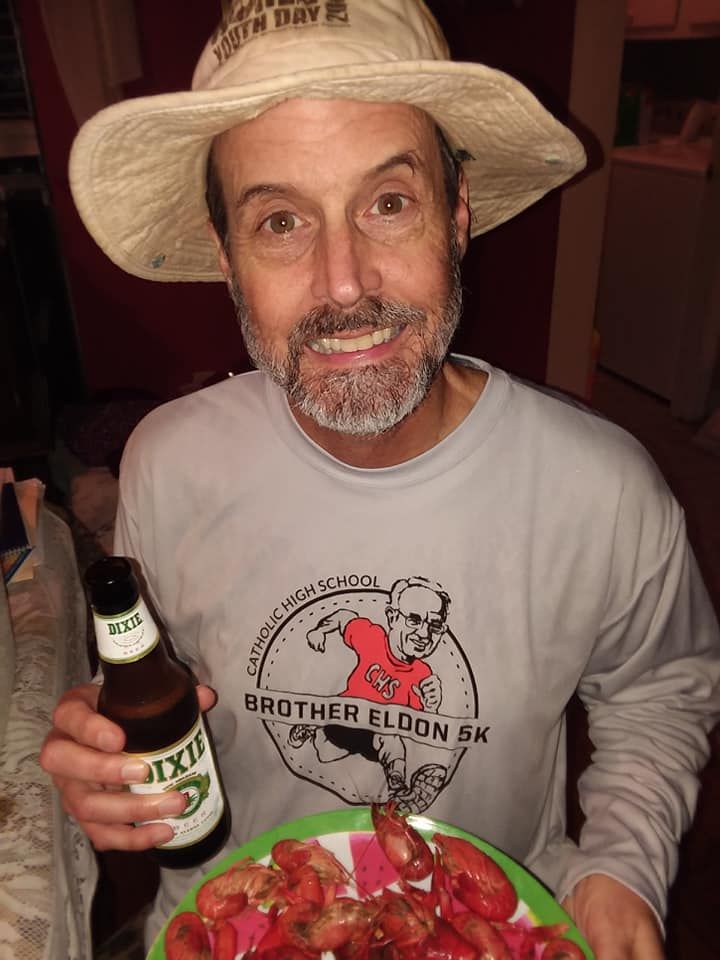Memories from Loyola University in New Orleans with the Jesuits, particularly, Fr. Dan Berrigan, SJ, at a local tavern, Cooter Brown's—finding common ground.
Watering holes can provide a great backdrop for discussion and understanding between people with varying opinions and even over serious matters. Who can forget this from some bar scenes on episodes of Cheers or the encounters at the improvised and manufactured distillery of Hawkeye and Trapper John on M*A*S*H. Even President Reagan and House Speaker Tip O'Neill found that an evening cocktail helped in resolving some of their bitter partisan differences.

One memorable experience that I had with this goes back to the summer of 1983
before I got married to Maria, my college sweetheart in New Orleans. Besides
working at the Loyola University Bookstore, I would answer phones and do
housekeeping on weekends at Thomas Hall, where the Jesuit priests resided. It
was neat to be able to see and help some of my former professors in a different
light. The University "Wolf Pub" provided students some fun times to
swallow down some pizza with beer and attempt to resolve debates with
classmates and profs in a more relaxed atmosphere.
Fr. Youree, SJ, a wonderful Philosophy teacher who would always start his
classes with a famous quote from someone like Plato that he had written on
those 3" X 5" index cards, told me to be careful when I vacuumed his
room. It happened that he would make himself reminder notes on index cards,
which he purposely put all over the ground. I had to be sure not to dispose of
these "To Do" lists when I was cleaning his room.
Fr. Ben, SJ, an innovative Eastern Religion teacher, certainly practiced what
he preached—keeping very simple quarters like he would use in our Zen I class
that had no chairs. After sitting on the floor for classes and doing zazen
meditation, we would do kinhin, a walking meditation. Sometimes we had class
outside in front of the school meeting at the "Touchdown Jesus"
Sacred Heart statue. We would dance Tai Chi to the tune of "Pachelbel Canon in
D," much to the thrill of nearby passersby on the St. Charles Avenue Streetcar.
Clarence was the chief chef at Thomas Hall who made some of the best New
Orleans dishes for the priests. As a perk to my job there, I would get to
indulge in some of his delicacies! He would tease me about some of my long-held
college antics and allowed me to sneak some of his unused goodies home so that
Maria could taste why I was always bragging about him.
Well also that summer, Fr. Dan, SJ, was in New Orleans for an Institute on Peace and Justice. He and his brother, Fr. Philip, a Josephite cleric, were renowned American peace activists called the Berrigan Brothers, whose leftist civil disobedience records included pouring their own blood onto Selective Service Records and even hammering US nuclear missiles per their "Plowshares Movement."
So one day, as I was busy handling phone calls at Thomas Hall, I had to relay a
message to Fr. Dan. He was very engaging and asked about routine New Orleans
tourist spots to check out. When he found out that I had been in the Jesuit
Volunteer Corps in 1981, he was curious as to if I had been involved in any
civil disobedience activities for social justice issues. When he heard that I
had participated in some peaceful pro-life activities at abortion clinics, he
asked if we could discuss this further over a beer or two to find some common
ground.
After work, I took Fr. Dan over to Cooter Brown's Tavern, a local watering hole
in the Uptown area by the Mississippi River where St. Charles and Carrollton
Avenues merge. It was a very popular place with live music at times and good
greasy food. For our oyster meal, I recommended that he try a Dixie (Faubourg)
long neck beer, a local tradition.
While Fr. Dan expounded over his views and made points that I could appreciate
that tied in well with the Church's historical record of always siding with the
marginalized in society, he also recognized the clarity of how that same
approach applied to my own defense of the unborn. I was also spell bound when
he shared with me some of those first-hand civil disobedience experiences he
had for his beliefs.
By the time we finished our second Dixie (Faubourg) beer, it was clear that we
both sought to live out the Gospel message—however divergent in our emphasis
and approaches—particularly as it related to the Sermon on the Mount's message,
the Beatitudes.
While we may have not been fully
converted to each other's opinions, we certainly better understood our beliefs.
Micah 6:8 certainly summarized what we had learned more about from the
encounter: "Do justice, love mercy, walk humbly with your God."

